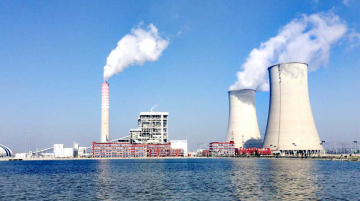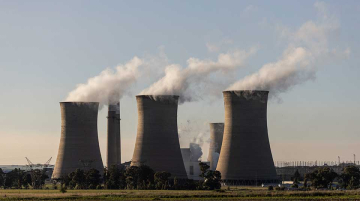Last week I ran into a friend who’s a media studies scholar. We caught up about our work – she’s busy with a paper about the media representation of face masks. What am I working on? A paper on China’s provision of coal-powered electricity in Africa. Oh, she said with real sympathy – poor you.
You know what? She’s not wrong. Reading exactly how much money China has pumped into highly polluting coal capacity in the Global South is depressing AF – even more so than I had expected.
According to a great new paper by Kelly Sims Gallagher, Rishikesh Bhandary, Easwaran Narassimhan and Quy Tam Nguyen, 22% of all China’s investment into foreign energy projects went into coal. China is funding 26 gigawatts of coal power as we speak. It doesn’t stop there. Japan is second with 19.5 gigawatts. This despite all Tokyo’s sanctimony about quality infrastructure, and a theoretical 2020 commitment to stop funding coal.
You want country numbers? I got country numbers! Between 2000 and 2019, China poured $9.3 billion into coal power in Indonesia, $7.7 billion into India, $7 billion into Vietnam, and $2.1 billion into Bangladesh. If only the currently planned coal installations in the world are built, they will release enough carbon to use up most of the world’s remaining budget to keep global heating under (an already disastrous) 2 degrees centigrade.
These numbers pose some sobering questions. In the first place, it really makes one wonder what ‘community of shared destiny’ means, when the shared global destiny China seems to be funding is ‘baked till crispy.’
In the second place, it puts an interesting spin on the issue of recipient government agency. The article makes clear that, while Chinese state-owned contractors actively promoted their already obsolete coal technology, no local government was pressured into buying it. Interviewed government officials said that the Chinese were as happy to sell some of their booming solar and wind capacity as they were to sell coal. The issue isn’t that China was pushing coal – the recipient governments were actively looking for coal and China was just happy to oblige.
So why would these governments willingly poison their communities (India and Indonesia have some of the worst air quality in the world and Vietnam is rapidly catching up) and saddle them with soon-to-be stranded assets while racking up billions of dollars in debt? One answer is the power of local coal lobbies (for example, Indonesian law artificially inflates renewable prices to make sure that coal seems inexpensive, even as solar and wind are now the world’s cheapest forms of energy.)
The second is maybe even more depressing: many local officials are just ill-informed, and happy to remain so. The result is the ‘good enough’ option – familiar enough that these officials don’t have to do much extra research, cheap enough that the hidden costs can be left to other people’s children. Even as China is working towards ‘excellent’ at home, it’s happy to fund ‘good enough’ everywhere else.
Those familiar with China-Africa discourse will know that recipient government agency is a hot topic. African governments who make decisions that seem to go against China’s wishes are frequently praised for exercising agency.









